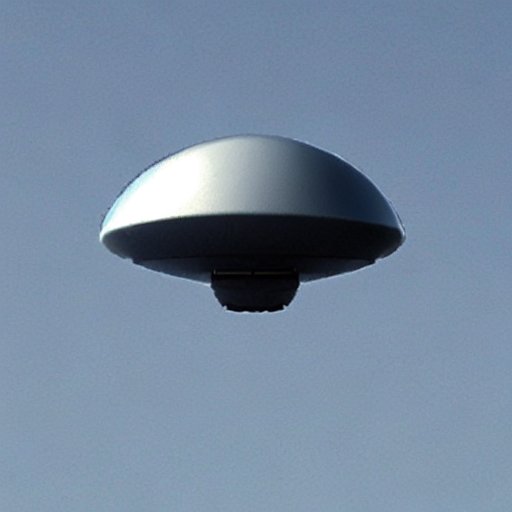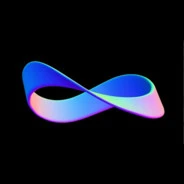I’ve definitely experienced that too sometimes a random video or post just clicks way better than a classroom explanation. But to be fair, many teachers have so much on their plate beyond just teaching. In Mexico, tools like MI Portal Fone are actually helping ease that load by giving teachers quick access to their pay stubs, CURP, RFC, and tax info without having to go through tons of paperwork or office visits. When systems like that handle the boring admin stuff, teachers can focus more on connecting with students and maybe even explain math like those viral internet folks.
This post confuses me. Why would code be simpler than the math notation? Both involve symbolic abstraction of basically the same complexity
Its got to be a relatively small group who knows enough to understand loops and is also afraid of math symbols.
Hi, I’m the problem. It’s me.
Maybe not so small?
I never encountered these math symbols but for loops are like step 3 in any programming language after variables and conditionals
lol, like 2.5% of the USA are programmers and even if we say twice that number have experimented and taken programming classes, that’s like 1 in 20 people who would even have ever encountered a for loop. This nsf report says ~70% of highschoolers have taken Algebra 2 or a more advanced math course, which is when sum notation is usually introduced. I think 70% is a little greater than 5%!
That’s interesting to hear; somehow my algebra 2 skipped sum notation (and it wasn’t remedially covered in subsequent math classes) but I’ve been writing code for decades now and seeing it in code totally explains the sum notation for me
I was great at maths in school, was in all the advanced classes and I found it so fun it didn’t feel like work to me. I learned a lot of the notation, but because I didn’t study maths further, I became rusty. With programming, I never really learned it, I just kept coming into contact with it as part of my post university work (in science), and gradually, I picked up some basics. The coding basics I did get feel much more familiar to me than the maths concepts now, because I literally couldn’t avoid coming into contact with coding in my work.
The maths they teach in school also is generally very pure maths, and that can make the concepts remain quite abstract. Matrices, for example, made way more intuitive sense to me when I used them as a scientist than when they were taught to me as a maths student.
I’m in this group and I don’t like it
I believe this group could be bigger than some may think. I, and the team I work with, work with for loops similar to these on a regular basis. And only one of us has a bachelor’s degree in math. The rest of us don’t really understand the math unless it is applied.
I’m in that group I think. I do like a liiitle bit of coding in some tiny specific progrqmming language in one piece of software that I use. I understand the basics but try to avoid having to do it. But while code is a little scary to me, math is much scarier lol
Math notation is just terrible in general because a lot of it is shorthand made up by someone who likes single-letter variables. A symbol you can’t type, something above, something below.
A for loop is clear and descriptive.
Or if you’re feeling fancy, you could go functional withreduce(add, range(0, 5), 0).Mathematical notation was designed to be written by hand. It is at least as clear and descriptive as any syntax from a programming language. You’re pretending that the abstraction behind a for loop is somehow less than that behind a sum or product notation.
I’m a subscriber to her YouTube(one of my favourite videos of hers) and she has a bunch of videos aimed at helping game developers learn the maths concepts they need for making games, so her audience is mostly people with a coding background, I’m guessing.
So it’s less that code is simpler than math notation, more that the maths notation looks scary to people without a maths background, but here’s a link to a different complex symbolic abstraction that you might already know
Here is an alternative Piped link(s): https://piped.video/aVwxzDHniEw
Piped is a privacy-respecting open-source alternative frontend to YouTube.
I’m open-source, check me out at GitHub.
i hate that we all got so frightened about math. it’s genuinely fun to learn how it works when you’re not being forced to in a school setting, which was just a fucking nightmare for no reason. i had this former navy DI lady teacher in gifted kid algebra [so already a year ahead] yell at me for asking questions; she wasn’t going to ‘hold my hand’ thru the homework, which was quite literally her fucking job
Idk man I’ve been doing my Cal 3 and 4 this semester and fuck me it’s hard. Yeah sure it’s cool sometimes but wrapping my head around it and often trying to think about things geometrically hurts. I sat there for a full hour trying to figure out why I couldn’t picture the equation I was trying to take a triple integral of only to realize it’s 4 dimensional and I almost cried
Turning 35 in a month and I’ve just started learning maths again after being afraid of it because of a similar situation to yours.
It’s surprisingly easy. I used tl give maths tutoring to finance my university degree. What I’d do is let the kids do one exercise task from their school books to see where their difficulties were. While they were on it, I quickly read through the relevant sections in the book, and it was so easy every time that I knew everything I needed to know after a few minutes. Like literally stuff that took weeks at school within minutes.
School just sucks and makes it really hard to learn anything. Almost everything kids learn at school is actually really easy.
Well it’s harder for them because they are kids and their brains are still developing. You’ve had a lifetime of experiences to draw from where you use math concepts subconsciously many times a day.
Totally true. They haven’t learned to learn yet, they aren’t learning because they want to, or even because they need what they learned.
But the point I was trying to make is, that many adults are still afraid (and many even strongly so) of maths, because it was hard for them at school. But it probably wouldn’t be hard for them now.
Fear fear fear. The same old, actually hollow from the inside, villian that bugs me everywhere
The hard part of math isn’t understanding esoteric symbols it’s the theory behind it and it’s application. Number theory will mindbreak almost all people.
The hardest thing for me about math was the symbols. Greek, Roman, English.
Once you get past that, the numbers are easy.
Number theory and higher levels of math are a completely different beast. Once your exam is over 50% just writing proofs you will change your tune. Unless you are built for it.
i still don’t understand but thanks
Oh cool, I know who this person is, she did a couple of amazing videos on Bezier curves and splines
Here is an alternative Piped link(s): https://piped.video/aVwxzDHniEw
Piped is a privacy-respecting open-source alternative frontend to YouTube.
I’m open-source, check me out at GitHub.
Fuck! Im 40 and this is the first time I understand the sigma sign!! Thank you!
Couldnt they just show this to me at 7th grade or something when i already learned pascal?
The sigma sign shows up as “sum” quite a bit but I didn’t know about the for-loop thing.
The education system creates scarcity of knowledge to increase the profit of investment and spending, everything complex can be broken down into simple forms.
Sounds as a conspiracy theory
Everything dealing with capitalism ends up sounding like a conspiracy theory. You’re like “of course people wouldn’t actually take this thing we, as humans, need and sell it,” when suddenly air has been commodified and those who can’t afford it are dlseen as not deserving of air.
People who are arguing that one way of expressing these concepts is easier to learn/understand than the other are missing the whole point. Mathematical notation was not designed to teach students how to do math or explain how to design algorithms. It was invented to communicate precise, abstract ideas concisely between mathematicians who already understand what the symbols mean.
Mathematicians require a notation that has the flexibility to manipulate mathematical objects/symbols in a way that naturally emphasizes their properties and relationships. Often they don’t even care whether the objects they’re studying are even computable or have a numerical representation. They just need them to have certain properties so that they can be manipulated appropriately.
Discrete sums are a rare example of when the mathematical notation overlaps with the description of an algorithm for computing its value (and the overlap is not even complete; infinite sums are easily represented in math notation but are practically uncomputable when implemented naively). Every other advanced mathematical concept puts a premium on ease of symbol manipulation over computability: integrals, derivatives, matrix multiplication, abstract algebra, etc.
TL;DR math notation is complex because its intended audience is people who already understand it, want maximum flexibility of symbol manipulation, and historically didn’t really care about practical computation.
You are right the symbols weren’t created so students can learn them, but students have to learn them at one point and for me personally, a student that knows how to program, figuring out that these symbols kind of represent for loops made them easier to understand.
Better then
It’s about math teachers, not English teachers.
In a way I always thought coding was more intuitive than maths writing norms. That is if you speak English. If not, it’s as much daunting as weird greek symbols.
These scary large math symbols aren’t scary at all and easily explained. The scary parts of maths lie elsewhere. They are discrete, nonlinear or high dimensional and sometimes even the numbers are complex… Or worse.
Quaternions are the closest you’ll ever get to lovecraftian horror in real life.
It’s very Lovecraftian that you saying this only makes me want to learn about them even more
I recommend this video and the channel in general. The guy can explain even the most complicated and abstract mathematical concepts in a perfectly clear and understandable way.
…
I had to watch the video on quaternions three times to grasp the concept.
Here is an alternative Piped link(s): https://piped.video/watch?v=d4EgbgTm0Bg
Piped is a privacy-respecting open-source alternative frontend to YouTube.
I’m open-source, check me out at GitHub.
What’s so scary about hypercomplex numbers exactly?
Let’s start with how their equation was originally carved into a stone bridge by a crazy mathematician in a fit of madness.
WHAT ok now I’m interested
Removed by mod
I don’t know her, so maybe my question is stupid, but does she explain math without using code? I, honestly, am too stupid to programing, I don’t understand it. I understand summary, not the second one
I think it would be much better to write it in another language, but here’s another way to do the second one (this is on Visual Basic):
Dim n as long Dim product as long Product = 1 For n = 1 to 4 Product = product * 2 * n Next nYeah I don’t really think that helps anyone that didn’t understand the above example, sorry.
For the case that n = 0 (before the first run of the loop), x(0) = 1.
For the first actual case, n = 1. X(1) = x(0)*3*n = 1*3*1 = 3.
For the next case, n = 2. X(2) = x(1)*3*n = 3*3*2 = 18.
For the next case, n = 3. X(3) = x(2)*3*n = 18*3*3 = 162.
For the next and last case, n = 4. X(4) = 162*3*4 which I’m not computing. The computer value of x(4) is the value of the product loop.
If that doesn’t help, I could try helping again to rephrase, but I’m not sure what else to add.
The biggest difference (other than the existence of infinity) is that the upper limit is inclusive in summation notation and exclusive in for loops. Threw me for a loop (hah) for a while.
i thought this was pretty weird too when i found out about it. i’m not entirely sure why it’s done this way but i think it has to do with conventions on where to start indexing. most programming languages start their indexing at 0 while much of the time in math the indexing starts at 1, so i=0 to n-1 becomes i=1 to n.
My abstract math professor showed us that sometimes it’s useful to count natural numbers from 1 instead of 0, like in one problem we did concerning the relation Q on A = N × N defined by (m,n)Q(p,q) iff m/n = p/q. I don’t hate counting natural numbers from 1 anymore because of how commonly this sort of thing comes up in non-computer math contexts.














